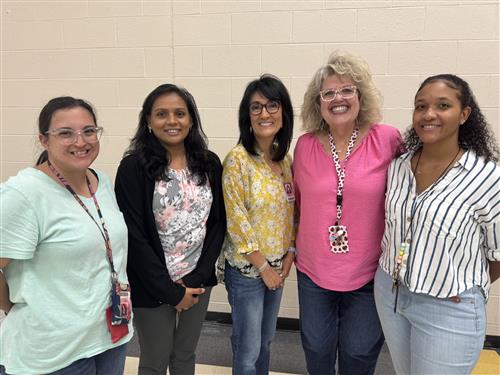Grade Levels
Page Navigation
-

Welcome to our Pre-K family!
We are so excited to begin this learning journey with you and your child. Our team is dedicated to creating a safe, loving, and fun environment where young learners can grow, explore, and develop a lifelong love of learning.
In Pre-K, children learn best through play, discovery, and hands-on experiences. Throughout the year, we will focus on building foundational skills in language, math, social-emotional development, and independence—all while having lots of fun along the way!
We believe that strong partnerships between home and school are key to a child’s success. We encourage open communication and look forward to working closely with you to support your child’s growth. Please don’t hesitate to reach out to us with any questions or concerns.
Here are a few reminders and guidelines that will help this school year be successful:
Communication:
Please check daily take home folders and email daily. This will be our main source of communication. Friday folders go home on Friday’s and should be returned Monday. Pre-k team conference time is from 11:45 am – 12:30pm.
Lunch:
Our lunch time is from 10:05 am – 10:35 am. Please be mindful of what you pack for your child’s lunch. We can NOT heat or refrigerate any student lunch items.
Snack:
Parents are responsible for packing their child’s snack daily. Please keep the snack inside of their backpack, do NOT put it inside of the lunch kit. All snacks must be dry and healthy, nothing that requires a spoon.
Birthdays:
You are allowed to bring cookies, donuts, or mini cupcakes to the front office for our class to celebrate your child’s birthday. All items must be store bought.
Personal Items:
Please label all backpacks (on the inside), lunch kits, jackets, extra clothes bags, etc. with your child’s first and last name. Please do NOT send any items that could potentially get lost or forgotten at school (jewelry, toys, electronics, etc.).
Restroom:
All students must always keep a full change of clothes in their backpacks inside of a Ziplock bag. In the event they have an accident they will be provided with support if needed to get changed. When getting ready for school please make sure to choose clothing that they can put on and take off independently.
Thank you for trusting us with your little one. We’re looking forward to an amazing year filled with laughter, learning, and wonderful memories!
Love,
The Pre-K Team

